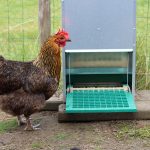Can Chickens And Guinea Fowl Live Together?
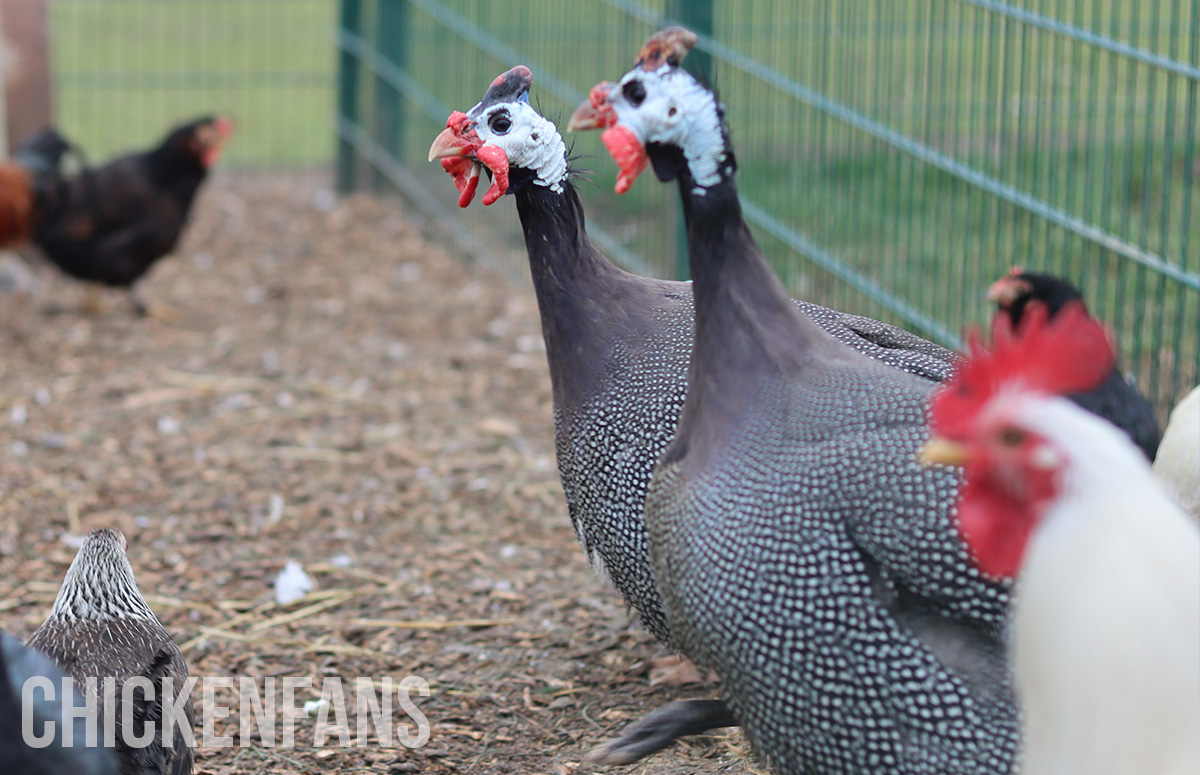
Raising more than one type of poultry is one of the many joys of backyard animal keeping. Yet, not all birds get along well, even if they seem like they should. Chickens and ducks are a popular combination, whereas raising chickens and turkeys together can be challenging. How about a more exotic combination, such as chickens and guinea fowl? Let’s find out.
Can You Keep Guinea Fowl and Chickens Together?
The quick answer is – yes, chickens and guineas can live together. In fact, they can live together quite well if you raise and train them properly. In many ways, this combination can be seen as easier to manage than chickens and turkeys, too, as there isn’t as much of a size difference, and the communication barrier isn’t as major.
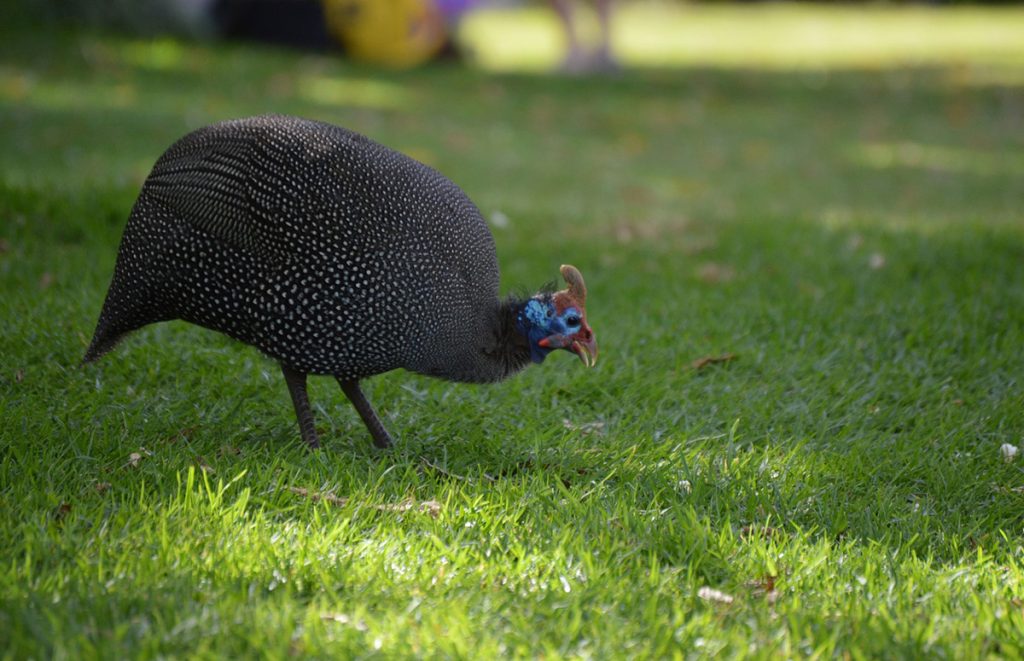
Challenges When Keeping Chickens and Guinea Fowl Together
The fact that you can keep both chickens and guineas in the same space doesn’t mean that there aren’t potential problems or things to keep in mind – there are quite a few. However, most of these stem from the fact that guinea fowl are just more challenging to look after than other domesticated fowl birds – with or without chickens near them.
What’s more, having chickens with your guinea fowl makes looking after the latter much easier if you play your cards right. If you raise the chicks and keets (guinea fowl chicks) together, the two species are more likely to start seeing each other as the same flock. This tends to keep the guinea fowl from escaping when they grow up.
There are quite a few other benefits of this combination of poultry birds, too, so, let’s explore all the potential positives and negatives, as well as all the Dos and Don’ts.
Behavior and pecking order
As we know, most chicken breeds tend to have strong hierarchical tendencies. Not only does the rooster see himself as the top dog in the coop’s hierarchy, but the hens also have a pecking order of several different tiers.
Many chicken keepers know from experience that combining a more aggressive chicken breed with a more mellow one can lead to bullying. Does this apply to the chicken & guineas combination?
There is a risk of behavioral issues, especially between guinea fowl cocks and roosters. Unlike chickens, guinea fowl are monogamous in the wild but can become polygamous when domesticated. However, a domesticated flock of guinea fowl is still expected to include a more or less even number of hens and cocks.
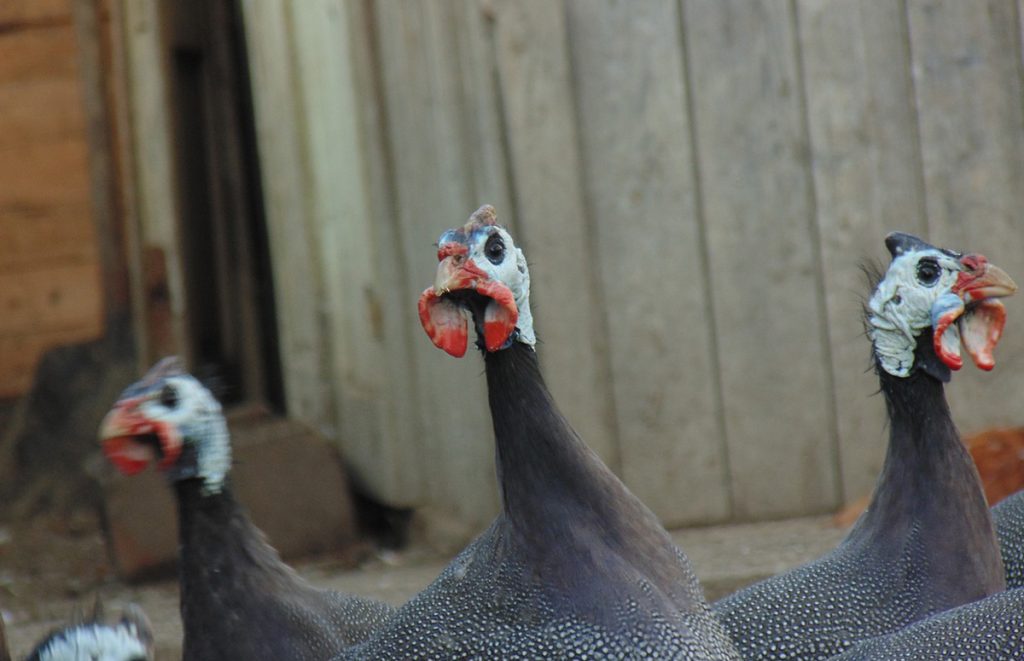
With so many guinea fowl cocks in the same flock as chickens, it’s not completely unlikely that conflicts will happen from time to time. In general, however, guinea fowl males aren’t as intuitively dominant as roosters.
To avoid behavioral issues, it’s usually best to make sure that you raise the two species together from an early age – possibly from the incubator. This way, the two types of birds will get along as best as possible, and the guineas won’t see the chickens as “outsiders”.
If your chicken breed also happens to be not overly dominant and aggressive, that will also significantly limit the risk of inter-fowl aggression.
Nutritional Needs
Guineas and chickens have fairly similar nutritional needs. Guinea fowl tend to prefer a diet that’s higher in protein, but they can live well enough on standard (unmedicated) poultry feed too. In this case, they will forage your backyard for insects to get the extra proteins they need.
If your yard permits it, you can just let your guineas forage entirely and just toss extra feed on the ground when necessary. Guinea fowl love to consume all types of insects and arachnids, including ticks, mosquitoes, beetles, caterpillars, slugs, worms, and others. Guineas can even go after small lizards and mice when they can.
They also need greens to maintain proper digestion so they can look for grass, weeds, flowers, and other types of vegetation. Unlike chickens, guineas don’t dig much, as they prefer to forage the surface of the ground. They are less likely to ruin your garden, depending on its exact makeup.
If you intend on letting your guineas feed entirely off the ground, it’s a good idea to throw them some scratch feed such as wheat, millet grain, or sorghum. They will ignore corn kernels. There shouldn’t be much of a clash between the nutritional needs of guinea fowl and chickens.
As for water, both of these birds require access to plenty of clean, fresh drinking water. So, there should always be a few easily available sources.
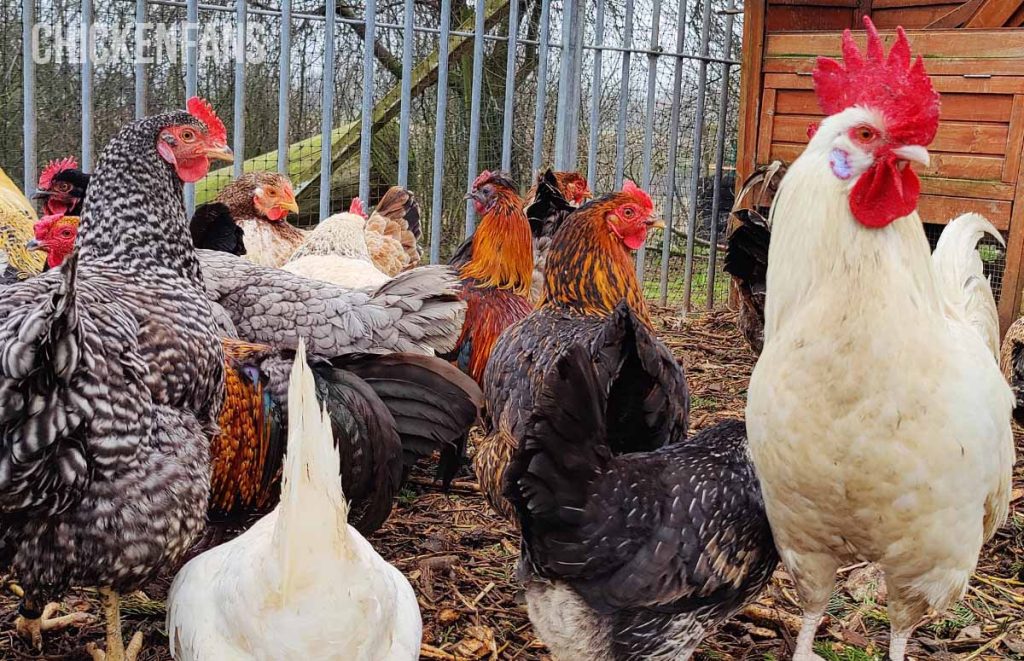
Housing Space
Proper housing is one of the bigger issues when looking after guineas and chickens together. Unlike domesticated chickens which are used to living in chicken coops, guinea fowl prefer to roost in trees or on top of buildings rather than inside the coop.
The situation isn’t unmanageable, however, and there are a few things you can do.
Raise them together from an early age
By raising your guinea fowl from keets, you can train them to be used to living in a chicken coop. The coop will still need to be relatively spacious as guineas need about 2 to 3 sq. ft. per bird when they grow up. However, if you have the space and you get the birds used to living this way from the earliest possible age, they will happily return to the coop on their own every night.
Guinea fowl have strong instincts to stick with their flock. This can sometimes be a problem, as if one bird flies off, others will likely join it. However, you can turn this to your advantage by raising the guinea fowl and chickens together from an early age. That way, the guineas will get used to seeing the chickens as members of their flock and will return to them rather than wander off in the middle of the night.
No other roosts near the coop
If possible, you should make sure that there aren’t other suitable roosting places near your property, such as trees or other buildings. This will further incentivize your guineas to return to the coop instead of wandering off.
This can be tricky or outright impossible if you live in a densely populated area, however. In those cases, it’s important to consult with your neighbors first, as it’s likely that your guinea fowl will occasionally fly on top of their houses.
This does bring up an obvious question – can you make sure that your guineas don’t fly off at all and stay on the ground at all times like chickens? The answer is no. Guinea fowl are significantly more capable fliers than chickens, even though they are ground-nesting fowl like them.
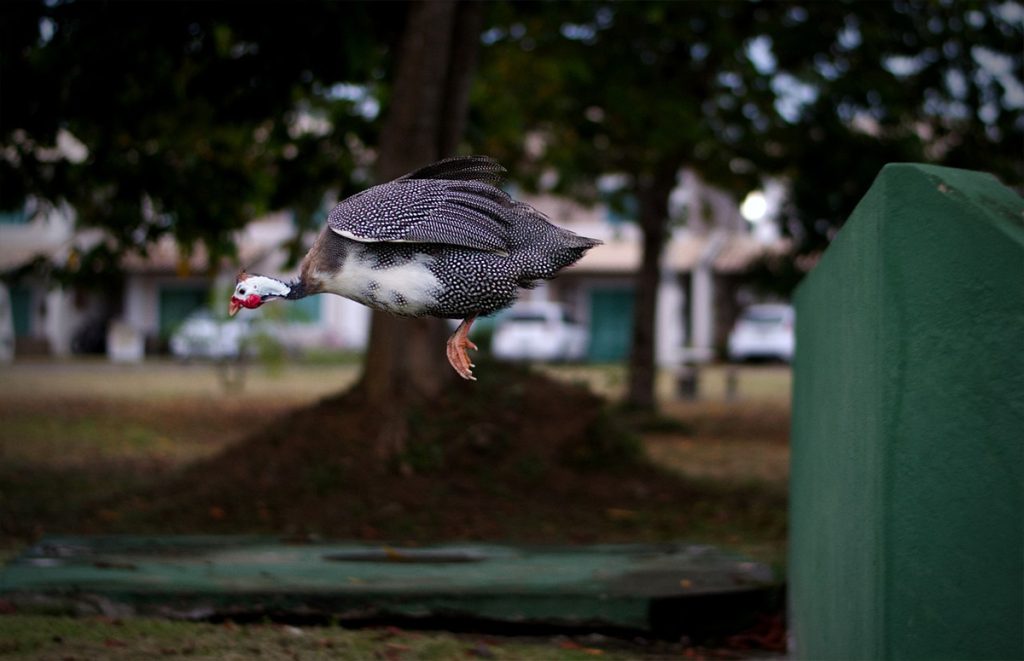
A guinea can easily fly up 500 feet into the air when it wants to, so there is no fence high enough to prevent them from doing so.
The only practical way to confine your guineas would be to just install a horizontal “roof” net on top of your entire backyard or property, effectively turning the whole space into an enclosed chicken run. This is hardly practical, however, and your guineas won’t be happy about it. Instead, if you just follow the steps above, you can make sure that your birds return to the coop every evening.
Cold resistance
As a final housing note – you may be inclined to think that guinea fowl are only suitable for warm climates as they are native to Africa. Yet, these birds are remarkably cold-resistant – much more so than most chicken breeds, including the ones we typically see as cold-resistant.
This isn’t an excuse not to insulate their coops properly, of course, but don’t be surprised if you see your guineas happily walking around in below-freezing temperatures.
How to Keep Guineas and Chickens Healthy Together?
Naturally, housing more than one type of bird together always brings the risk of diseases crossing between the two species. This is the case with guineas and chickens, too, however, to a lesser degree than with some other species.
Even though they are quite different, guineas generally suffer from the same diseases as domesticated chickens, with colibacillosis, salmonellosis, and Newcastle disease as prime examples. What’s more, because guineas are such voracious hunters of insect pests and ticks in particular, they are excellent at keeping your backyard safe from many parasites.
So, while you shouldn’t let your guard down and you should always keep an eye on your birds for any health issues, chickens and guinea fowl can coexist quite well and remain healthy together more often than not.
Do Roosters and Guinea Cocks Get Along?
There can be behavioral issues between guinea cocks and roosters, mainly if the birds were introduced to each other as adults. Such issues can be managed and are especially easy to avoid if you raise the two types of fowl together from a young age.
Can Guineas and Chickens Incubate Together?
There are some contentious opinions about this, but most people can incubate guineas and chickens together. The ideal temperature for chicken eggs is typically 37.5 °C (99.5°F) or anywhere between 35°C and 40.5°C (84.5 – 104.9°F). This is very close to the optimal incubation temperature for guinea fowl eggs which is 37.4 °C (99.1°F).
As for the humidity levels, chicken eggs should be kept around 57% for most of the incubation and then up to 60% to 70% for the hatching phase. Guinea eggs do well on 48% to 54% humidity for most of the incubation, but their humidity levels can be raised to 64% in the end too.
The main difference between the two is that chicken eggs typically hatch about a week earlier – 21 days incubation compared to 28 days for guineas. This can easily be amended, however, if you add the chicken eggs a week later – this way, both eggs hatch at the same time.
Can Chicks and Keets Live Together?
They can and should if you want them to get along as adults. Raising your guineas from keets with chicks is the best thing you can do if you want your backyard flock to be easy to manage and live in harmony.
Summary
It takes some effort to look after both guinea fowl and chickens together, but it’s generally worth it if you do it right. Guineas are great birds to have around, and they are excellent for your backyard pest control. They are even an excellent alarm system against predators such as foxes, as guineas get very vocal very fast when they spot danger nearby.
So, assuming you’re aware of the effort you’d need to put in and are prepared to do things right, keeping chickens and guinea fowl together is a great idea.
If you want to learn more about co-housing multiple poultry types together, take a look at our ‘Can chickens live with turkeys‘ and ‘Can chickens and ducks live together‘ articles.

